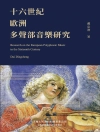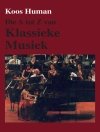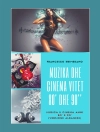The complex relationship between myths and music is here investigated.
Myths and stories offer a window onto medieval and early modern musical culture. Far from merely offering material for musical settings, authoritative tales from classical mythology, ancient history and the Bible were treated as foundations for musical knowledge. Such myths were cited in support of arguments about the uses, effects, morality and preferred styles of music in sources as diverse as theoretical treatises, defences or critiques of music, art, sermons, educational literature and books of moral conduct. Newly written literary stories too were believed capable of moral instruction and influence, and were a medium through which ideas about music could be both explored and transmitted. How authors interpreted and weaved together these traditional stories, or created their own, reveals much about changing attitudes across the period.
Looking beyond the well-known figure of Orpheus, this collection explores the myriad stories that shaped not only musical thought, but also its styles, techniques and practices. The essays show that music itself performed and created knowledge in ways parallel to myth, and worked in tandem with old and new tales to construct social, political and philosophical views. This relationship was not static, however; as the Enlightenment dawned, the once authoritative gods became comic characters and myth became a medium forridicule. Overall, the book provides a foundation for exploring myth and story throughout medieval and early modern culture, and facilitating further study into the Enlightenment and beyond.
KATHERINE BUTLER is a seniorlecturer in music at Northumbria University; SAMANTHA BASSLER is a musicologist of cultural studies, a teaching artist, and an adjunct professor in the New York metropolitan area.
Contributors: Jamie Apgar, Katie Bank, Samantha Bassler, Katherine Butler, Elina G. Hamilton, Sigrid Harris, Ljubica Ilic, Erica Levenson, John Mac Innis, Patrick Mc Mahon, Aurora Faye Martinez, Jacomien Prins, Tim Shephard, Jason Stoessel, Férdia J. Stone-Davis, Amanda Eubanks Winkler.
Tabela de Conteúdo
Introduction
Music and the Myth of Apollo’s Grove – John Mac Innis
The Consolation of Philosophy and the ‘Gentle’ Remedy of Music – Férdia J Stone-Davis
And in England, There are Singers: Grafting Oneself into the Origins of Music – Elina G. Hamilton
The Harmonious Blacksmith, Lady Music, and Minerva: The Iconographyof Secular Song in the Late Middle Ages – Jason Stoessel
Foolish Midas: Representing Musical Judgement and Moral Judgement in Italy c.1520 – Tim Shephard
Marsilio Ficino and Girolamo Cardano under Orpheus’s Spell – Jacomien Prins
Origin Myths, Genealogies, and Inventors: Defining the Nature of Musicin Early Modern England – Katherine Butler
How to Sing like Angels: Isaiah, Ignatius of Antioch, and Protestant Worship in England – Jamie Apgar
In Pursuit of Echo: Sound, Space, and the History of the Self – Ljubica Ilic
Ophelia’s Mad Songs and Performing Story in Early Modern England – Samantha Bassler
Dangerous Beauty: Stories of Singing Women in Early Modern Italy – Sigrid Harris
‘Fantastic Spirits’: Myth and Satire in the Ayres of Thomas Weelkes – Katie Bank
Feeling Fallen: A Re-telling of the Biblical Myth of the Fall in a Musical Adaptation of Marvell’s ‘A Dialogue between Thyrsis and Dorinda’ – Aurora Faye Martinez
‘Armida’s Picture we from Tasso Drew’?: The Rinaldo and Armida Story in Late-Seventeenth- and Early-Eighteenth-Century English Operatic Entertainments – Amanda Eubanks Winkler
Translating Myth Through Tunes: Ebenezer Forrest’s Ballad Opera Adaptation of Louis Fuzelier’s
Momus Fabuliste (1719-29) – Erica Levenson
Bibliography
Sobre o autor
KATHERINE BUTLER is Senior Lecturer in Music, Northumbria University. She is the author of Music in Elizabethan Court Politics (2015 and 2019).












